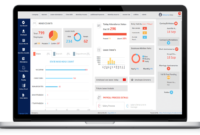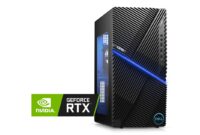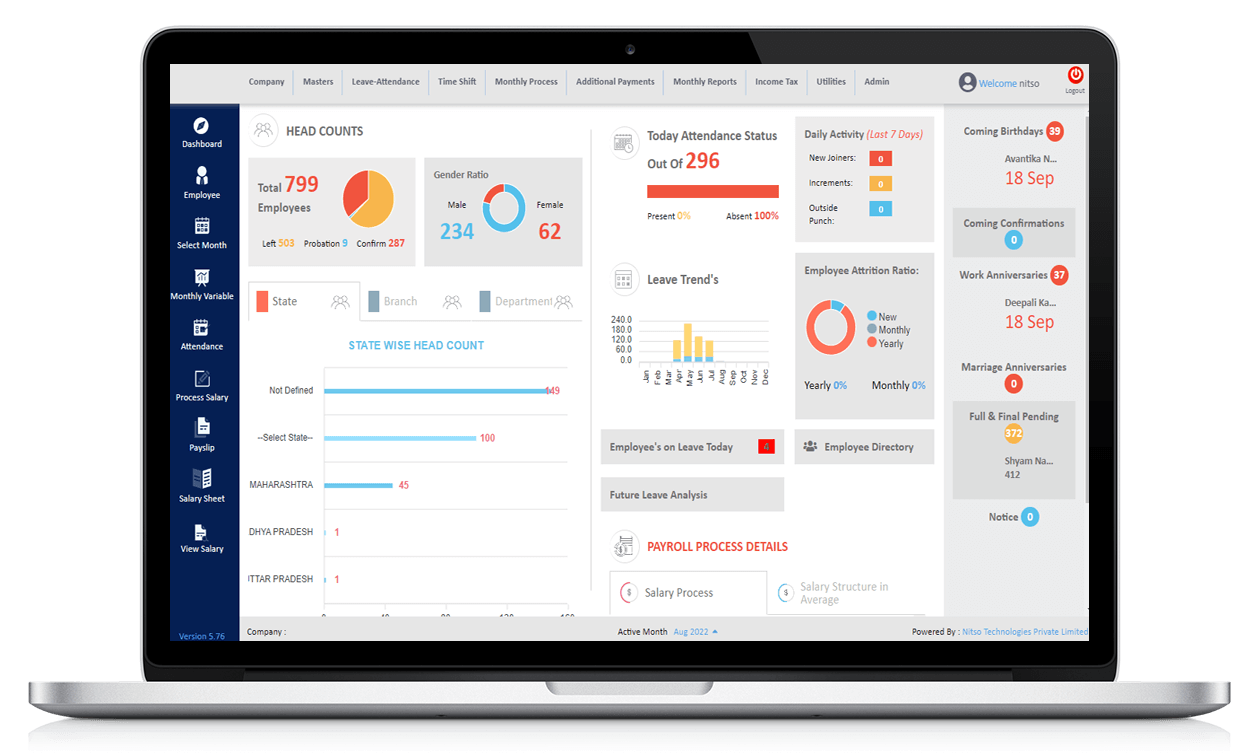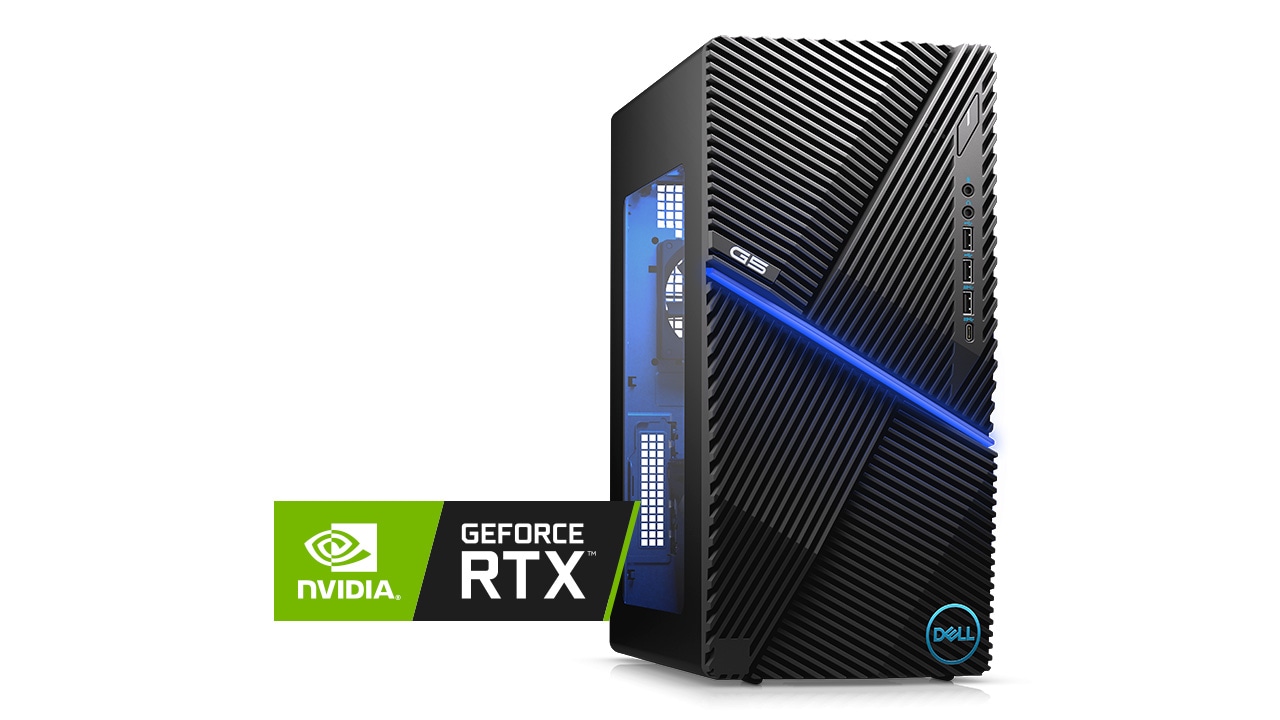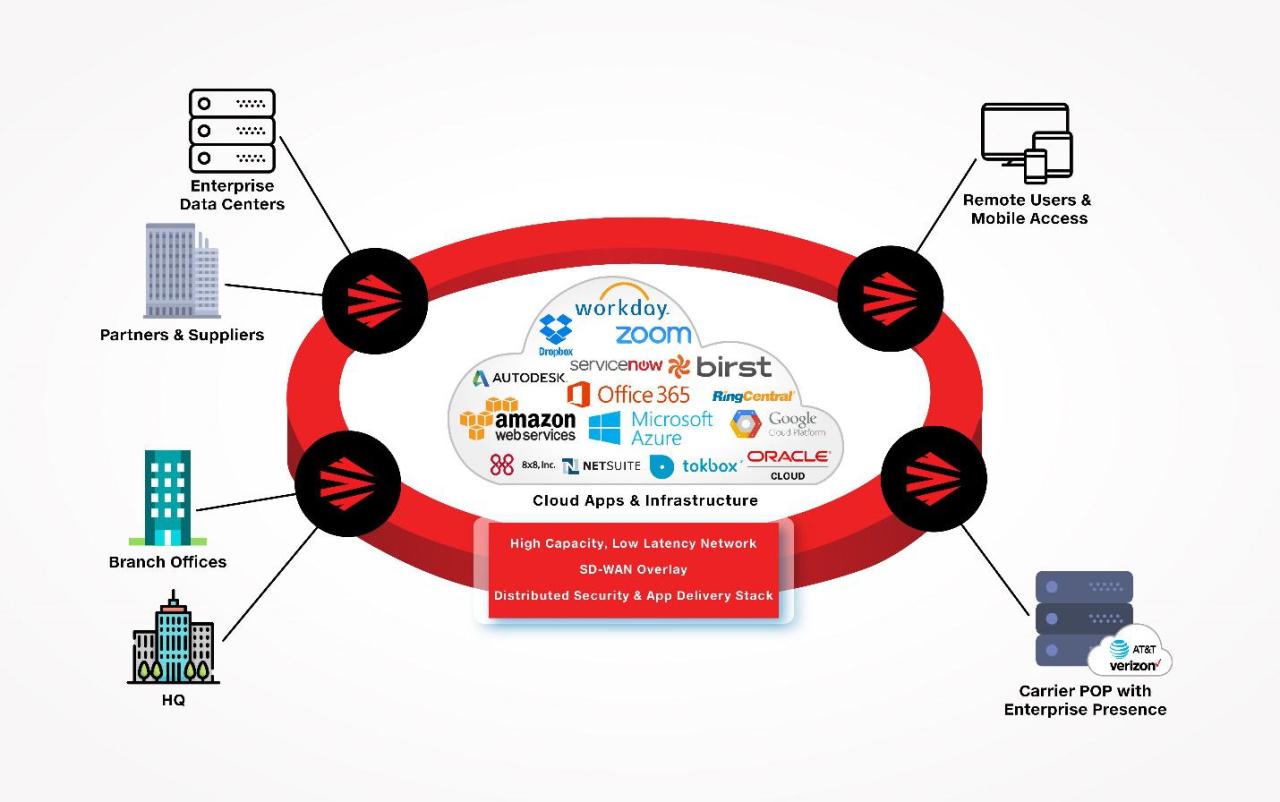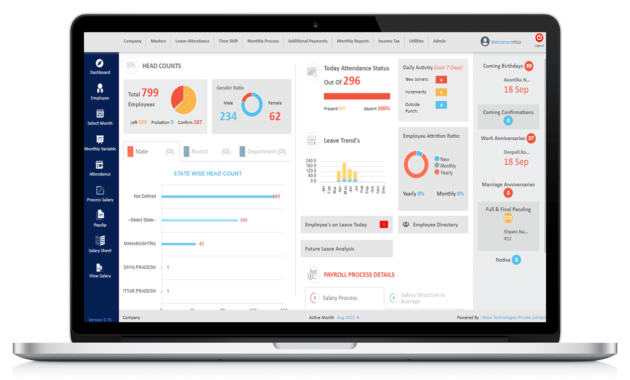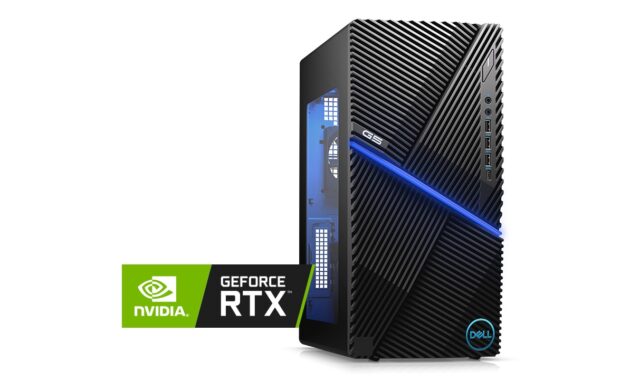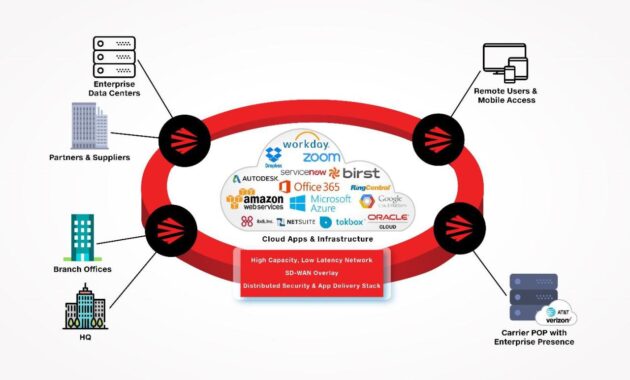dell computer company stands at the forefront of the tech world, known for its innovative solutions and commitment to quality. Founded in the heart of the tech boom, Dell has navigated a rapidly changing industry, consistently adapting to meet the needs of its diverse clientele. From laptops to desktops and cutting-edge servers, the company offers a wide range of products designed to empower users in both personal and professional environments.
Throughout its history, Dell has achieved significant milestones that underscore its growth and resilience. The company’s mission is not just to sell computers but to provide technology that inspires and supports innovation across various sectors. As we delve into the details of Dell’s offerings, market position, and commitment to sustainability, it becomes clear why Dell continues to be a trusted name in the world of technology.
Company Overview
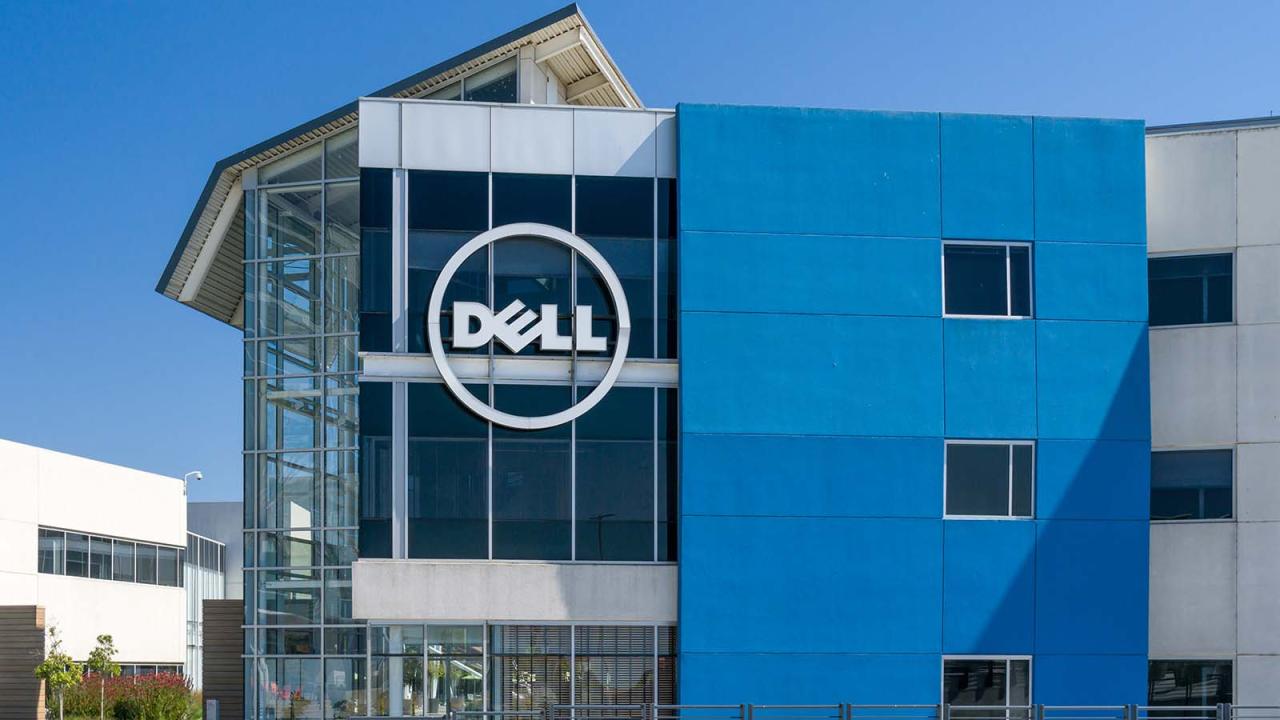
Dell Computer Company, founded in 1984 by Michael Dell in Austin, Texas, has evolved into one of the leading technology corporations in the world. Initially starting as PC’s Limited with a vision to sell personal computers directly to consumers, Dell’s innovative approach disrupted traditional retail channels, allowing customers to customize their purchases. This direct-to-consumer model not only set the company apart from its competitors but also laid the foundation for its rapid growth and expansion.Throughout its history, Dell has achieved several key milestones that have marked its significant growth trajectory.
The company went public in 1988, gaining substantial capital to fuel its expansion. In 1999, Dell became the largest PC manufacturer globally, a title it held for many years. The introduction of the Dell Solutions and Services division in the early 2000s allowed the company to diversify its offerings, moving beyond hardware into comprehensive IT solutions. In 2016, Dell Technologies was formed through the acquisition of EMC Corporation, solidifying its position in the enterprise solutions market and reinforcing its commitment to innovation and customer satisfaction.
Mission and Vision Statements
Dell’s mission statement focuses on delivering technology that empowers individuals and organizations to achieve more. This commitment is reflected in its dedication to innovation, customer-centric solutions, and sustainability. The vision statement, on the other hand, emphasizes creating a world where technology is accessible and beneficial for everyone. This dual focus on empowerment and accessibility highlights Dell’s strategic intentions to drive progress and foster inclusive growth in the tech industry.The significance of these statements lies in their ability to guide the company’s operations, influencing everything from product development to customer engagement.
By prioritizing user experience and technological advancement, Dell positions itself not only as a leader in the tech sector but also as a responsible corporate citizen committed to ethical business practices and societal impact.
“We create technologies that drive human progress.”
Dell Technologies
Product Range
Dell has established itself as a leader in the technology industry by offering a diverse product range that caters to various consumer needs. From personal computing solutions to enterprise-level servers, Dell’s products are designed for efficiency and performance. This extensive portfolio reflects the company’s commitment to innovation, quality, and customer satisfaction.Dell’s offerings encompass several key categories, including laptops, desktops, servers, monitors, and accessories.
Each category is infused with the latest technologies that enhance functionality and user experience. The company continuously updates its product lines to meet changing market demands and to incorporate advancements in technology.
Laptops and Desktops
Dell’s laptops and desktops stand out due to their cutting-edge design and technology integration. The XPS series, renowned for its sleek design and powerful performance, integrates the latest Intel processors and high-resolution displays, making it a favorite among professionals and creatives. The Inspiron line, on the other hand, caters to everyday users and students, offering reliable performance at an accessible price point.Key features include:
- Latest Processors: Dell frequently utilizes Intel’s latest offerings, including the 13th Gen Core processors, ensuring top-tier performance.
- Display Technology: Many models feature OLED displays for vibrant colors and superior contrast ratios.
- Battery Life: Advanced battery technology, such as ExpressCharge, allows rapid charging and longevity.
Servers and Workstations
In the realm of servers, Dell’s PowerEdge series is designed to deliver exceptional performance and balance scalability with efficiency. These servers are equipped with the latest technologies, such as NVMe storage options and integrated security features, making them ideal for data centers and cloud applications.The workstation line, including the Precision series, is engineered for professionals who require high-performance computing, especially in fields like graphic design, architecture, and data analysis.
These workstations often feature powerful GPUs and ample RAM to handle demanding applications.Key aspects include:
- Scalability: Dell servers allow easy upgrades to accommodate growing workloads.
- Integrated Security: Features like Secure Boot and TPM (Trusted Platform Module) enhance data protection.
- Remote Management: Tools like iDRAC permit administrators to manage servers remotely, simplifying maintenance.
Comparison with Competitors
When compared to competitors such as HP and Lenovo, Dell’s product range offers distinct advantages in terms of build quality and customer support services. Dell’s Direct-to-Consumer model allows for customization, enabling customers to tailor products to their specific needs. Additionally, Dell’s commitment to sustainability and eco-friendly practices resonates well with environmentally conscious consumers.Factors influencing Dell’s competitive edge include:
- Customization Options: Dell’s products can be configured with various specifications, ensuring that users get exactly what they need.
- Warranty and Support: Dell offers robust warranty options and support services, enhancing customer experience and satisfaction.
- Innovative Features: Continuous incorporation of AI and machine learning into products offers users smart capabilities that streamline tasks and enhance productivity.
“Dell’s commitment to innovation ensures that their product offerings not only meet current market demands but are also future-ready.”
Market Position
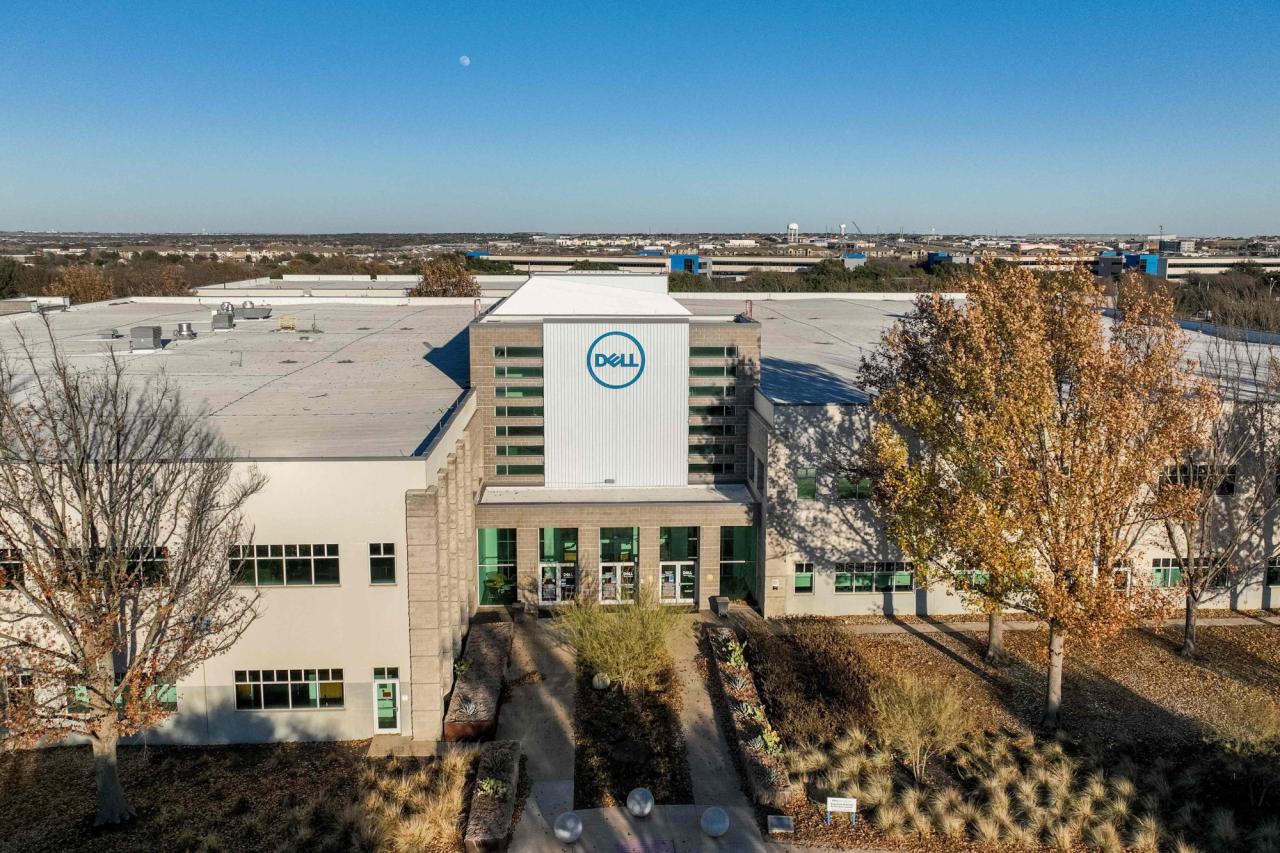
Dell Technologies stands as a prominent player in the global computer market, known for its innovative approach to technology and customer-centric solutions. Over the years, the company has firmly established its presence, catering to a diverse clientele that ranges from individual consumers to large enterprises. This market positioning is a result of strategic planning and a deep understanding of evolving customer needs.Dell’s global market share is significant, placing it among the top manufacturers in the personal computer (PC) segment.
According to recent industry reports, Dell consistently ranks as one of the leading PC vendors worldwide, claiming a substantial portion of the market, often competing closely with other giants like HP and Lenovo. The company’s success can be attributed to its strong brand recognition and an extensive distribution network that spans various regions.
Target Audience and Customer Demographics
Understanding the target audience is crucial for any business, and Dell exemplifies this with its varying product lines aimed at different customer segments. Dell’s customer base includes:
- Individuals and Home Users: These customers often seek reliable and affordable computing solutions for everyday tasks such as browsing, streaming, and light gaming.
- Small to Medium Enterprises (SMEs): This demographic values performance and scalability, looking for products that enhance productivity and support business growth.
- Large Corporations: Dell provides enterprise-level solutions, focusing on high-performance hardware and services that meet the complex needs of large organizations.
- Educational Institutions: Schools and universities benefit from Dell’s specialized offerings, which include budget-friendly devices that support learning environments.
Each segment illustrates Dell’s versatility and commitment to tailoring its offerings to meet specific needs.
Strategies for Competitive Edge
Dell employs several strategies to maintain its competitive advantage in the marketplace. A few key approaches include:
- Direct Sales Model: By selling directly to consumers and businesses, Dell eliminates intermediaries, resulting in cost savings that can be passed on to customers.
- Customization Options: Dell allows customers to configure products according to their specifications, creating personalized solutions that meet unique requirements.
- Supply Chain Efficiency: A streamlined supply chain ensures quick delivery and flexibility in responding to market demands, enhancing customer satisfaction.
- Investment in Innovation: Continuous investment in research and development enables Dell to stay ahead of technological trends and provide cutting-edge products.
These strategies not only reinforce Dell’s market position but also enhance customer loyalty and satisfaction, solidifying its reputation as a leader in the technology sector.
“Successful competitive strategies are not just about being better than the competition but continuously adapting to meet the ever-changing demands of the market.”
Manufacturing and Supply Chain
Dell’s manufacturing and supply chain processes are integral to its ability to deliver high-quality products efficiently to customers around the world. With a commitment to innovation and excellence, Dell has established a robust manufacturing framework that allows for customization and rapid production to meet diverse consumer needs. By leveraging advanced technologies and a global network of facilities, Dell ensures that its systems are manufactured with precision and speed.Dell’s manufacturing process incorporates a combination of in-house production and partnerships with third-party manufacturers.
The company operates several assembly plants in key locations like the United States, China, and Brazil, where various components are brought together to create finished products. Each facility is equipped with state-of-the-art technology and follows stringent quality control measures. This setup allows Dell to respond quickly to market demands while maintaining high standards of quality.
Manufacturing Locations
Dell’s manufacturing footprint is strategically positioned around the globe to optimize production efficiency and logistics. The following are key manufacturing locations and their significance:
- United States: Dell’s largest manufacturing facility is located in Austin, Texas, where it primarily assembles laptops and desktops. The proximity to the North American market enhances delivery times.
- China: A major hub for Dell, the plants in Xiamen and Chengdu focus on both assembly and component sourcing, benefitting from local suppliers and a skilled workforce.
- Brazil: The facility in Hortolândia caters to the South American market, allowing Dell to avoid high import tariffs and provide localized support for customers.
Supply Chain Management Practices
Dell is well-known for its innovative supply chain management practices, which include direct-to-consumer sales and a just-in-time inventory system. This approach reduces excess inventory and allows for better alignment with customer demand. Key components of Dell’s supply chain management include:
- Build-to-Order Model: This model allows customers to customize their computers, which minimizes waste and ensures that products meet specific customer requirements.
- Supplier Partnerships: Dell collaborates closely with suppliers to streamline component procurement and maintain quality standards, ensuring that components are available when needed.
- Advanced Analytics: The use of data analytics enables Dell to forecast demand accurately, optimize inventory levels, and improve operational efficiency.
Impact of Global Events on Production and Supply Chain
Global events can significantly influence Dell’s manufacturing and supply chain operations. For instance, the COVID-19 pandemic disrupted manufacturing and logistics worldwide, affecting everything from component availability to shipping schedules.
“The pandemic highlighted the vulnerabilities in global supply chains, prompting Dell to reassess its sourcing strategies and diversify its supplier base.”
Dell has responded to these challenges by enhancing its supply chain resilience through:
- Diversification of Suppliers: Expanding the supplier network helps mitigate risks associated with reliance on single-source suppliers.
- Investment in Automation: Increased automation in production processes helps reduce reliance on manual labor and improves operational speed.
- Regional Manufacturing: Establishing production facilities closer to key markets can reduce lead times and shipping costs, making the supply chain more flexible.
Innovations and Technology
In recent years, Dell has made significant strides in innovation and technology, driven by a commitment to enhance user experience and improve operational efficiency. The company has focused on developing cutting-edge solutions that cater to the evolving needs of both consumers and businesses, embracing trends such as AI, cloud computing, and sustainability.Dell’s approach to innovation includes not only in-house development but also collaborations with leading tech firms to foster advancements in various sectors.
These partnerships have enabled Dell to leverage shared expertise and resources, resulting in more robust product offerings.
Notable Innovations
Dell has introduced several groundbreaking innovations, enhancing its product lineup and overall market presence. Here are key advancements:
- AI-Powered Support Assist: This tool utilizes artificial intelligence to predict and address system issues proactively, improving customer support and reducing downtime.
- Project Apex: A comprehensive cloud management solution that simplifies multi-cloud environments, allowing organizations to manage their cloud resources more efficiently.
- Thin Client Technology: Dell’s advancements in thin client solutions provide secure access to virtual desktops, promoting remote work and reducing hardware costs.
- Eco-Friendly Designs: Dell has committed to sustainability by creating products using recycled materials and designing energy-efficient devices, aiming to minimize environmental impact.
Collaborations for Advancements
Collaboration has played a crucial role in Dell’s innovation strategy. The company has partnered with various tech giants to enhance its capabilities and expand its offerings. Noteworthy partnerships include:
- Microsoft: Through this collaboration, Dell has enhanced its cloud services with the integration of Microsoft Azure, enabling seamless access to cloud resources for users.
- VMware: Dell’s partnership with VMware has resulted in optimized virtualization solutions, boosting performance and scalability for enterprise users.
- Intel: Joint efforts with Intel have led to the development of advanced processors in Dell devices, ensuring high performance and energy efficiency.
R&D Investments Compared to Industry Peers
Dell’s commitment to research and development (R&D) is reflected in its investment strategies, which significantly contribute to its innovation pipeline. The following table highlights Dell’s R&D investments compared to some of its industry peers, showcasing its dedication to maintaining a competitive edge:
| Company | Annual R&D Investment (USD Billion) |
|---|---|
| Dell Technologies | 3.0 |
| HP Inc. | 1.5 |
| Lenovo Group | 2.2 |
| Apple Inc. | 20.0 |
| Microsoft | 19.3 |
“Investments in R&D are essential for driving innovation and maintaining market competitiveness.”
Dell’s ongoing focus on innovation, combined with strategic collaborations and substantial R&D investments, positions the company as a leader in the technology sector, continually adapting to meet the changing demands of consumers and businesses alike.
Environmental Initiatives
Dell Technologies is committed to fostering a sustainable future through comprehensive environmental initiatives. Recognizing the urgent need for eco-friendly practices, the company actively integrates sustainability into its operations, product design, and supply chain management. By prioritizing responsible manufacturing and resource conservation, Dell aims to reduce its overall environmental impact while promoting a circular economy.Dell’s sustainability programs are diverse, focusing on reducing carbon emissions, improving energy efficiency, and minimizing waste.
The company has set ambitious goals to achieve net-zero greenhouse gas emissions across its global supply chain and product life cycle by 2030. In doing so, Dell emphasizes the importance of using renewable energy sources and implementing measures to improve energy efficiency in both its manufacturing processes and its products. For instance, Dell has transitioned to 100% renewable energy for its global operations, which significantly reduces its carbon footprint.
Sustainability Programs and Practices
Dell’s sustainability initiatives encompass various programs aimed at enhancing environmental responsibility. These include:
- Product Recycling: Dell has established a robust recycling program that allows customers to return used products for responsible recycling and reuse. This initiative promotes a circular economy by ensuring materials are continually reintegrated into the supply chain.
- Energy Efficient Products: Dell designs its products with energy efficiency in mind, often exceeding the Energy Star requirements. Many of Dell’s products are engineered to consume less power during operation, contributing to significant energy savings for consumers.
- Sustainable Packaging: The company has committed to using sustainable materials in its packaging, aiming to drive a reduction in plastic usage. Dell’s packaging initiatives often utilize recycled content and are designed for easier recycling by customers.
Carbon Reduction Efforts, Dell computer company
Dell has made significant strides in reducing its carbon footprint through targeted initiatives. Key efforts include:
- Renewable Energy Transition: By leveraging renewable energy sources such as solar and wind power, Dell has achieved notable reductions in emissions associated with its operational energy use. The company has also encouraged its suppliers to adopt similar practices.
- Transportation Optimization: Dell implements strategies for optimizing transportation logistics, including route planning and load management, which lowers emissions from shipping products to customers.
- Product Lifecycle Assessment: By conducting lifecycle assessments for its products, Dell identifies opportunities to decrease environmental impact from raw material extraction to end-of-life disposal.
Industry Standards and Certifications
Dell adheres to several industry standards and certifications that reflect its commitment to environmental responsibility. Some of these include:
- ISO 14001: This international standard for environmental management systems guides Dell in improving its environmental performance and compliance with regulations.
- ENERGY STAR: Many of Dell’s products carry the ENERGY STAR label, demonstrating compliance with strict energy efficiency guidelines set by the U.S. Environmental Protection Agency.
- Electronic Product Environmental Assessment Tool (EPEAT): Dell is an active participant in the EPEAT registry, which evaluates products based on their environmental attributes, ensuring they meet stringent sustainability criteria.
Dell’s unwavering dedication to environmental initiatives not only fosters a sustainable future but also sets a precedent within the technology industry, encouraging others to follow suit in the pursuit of eco-friendly practices.
Customer Support and Services: Dell Computer Company
Dell understands that exceptional customer service is crucial in maintaining a loyal customer base and enhancing user experience. With a variety of support options, Dell ensures that users have access to assistance when they need it, whether it’s for technical issues or general inquiries.Dell offers an extensive range of customer support options that cater to different needs. Users can access support through online resources, phone support, and chat services.
This multi-channel approach allows customers to choose the most convenient way to resolve their issues. The Dell Support website provides a wealth of information, including troubleshooting guides, FAQs, and a community forum where users can share solutions and experiences.
Warranty Programs and After-Sales Services
Dell’s warranty programs are designed to provide peace of mind for customers. The company typically offers a standard one-year limited hardware warranty on new products, which can be extended with various options to suit individual needs. This includes on-site service, which sends a technician to the customer’s location for repairs, and accidental damage service, which covers unexpected mishaps.The after-sales services provided by Dell enhance the user experience significantly.
Customers can benefit from:
- ProSupport: An advanced support package that offers 24/7 access to expert technicians and faster resolution times.
- ProSupport Plus: This all-in-one solution includes proactive monitoring, support, and accidental damage coverage.
- Next Business Day Service: For users who require swift repairs, this service ensures that Dell technicians will arrive the next business day to fix hardware issues.
Customer Satisfaction Ratings Comparison
Customer satisfaction is a key indicator of service quality, and Dell consistently ranks well in various surveys. When compared to other leading brands in the technology sector, Dell’s ratings reflect its commitment to customer service.A recent study indicated that Dell achieved a customer satisfaction score of 85%, which is competitive against major players like HP and Lenovo, who scored 80% and 78% respectively.
This comparison highlights Dell’s effectiveness in addressing customer needs and resolving issues promptly.
“The commitment to high-quality customer support has positioned Dell favorably in the minds of consumers, as reflected in their satisfaction ratings.”
In summary, Dell’s customer support and service offerings, including comprehensive warranty programs and high satisfaction ratings, reinforce its reputation as a reliable technology partner for users around the globe.
Future Outlook
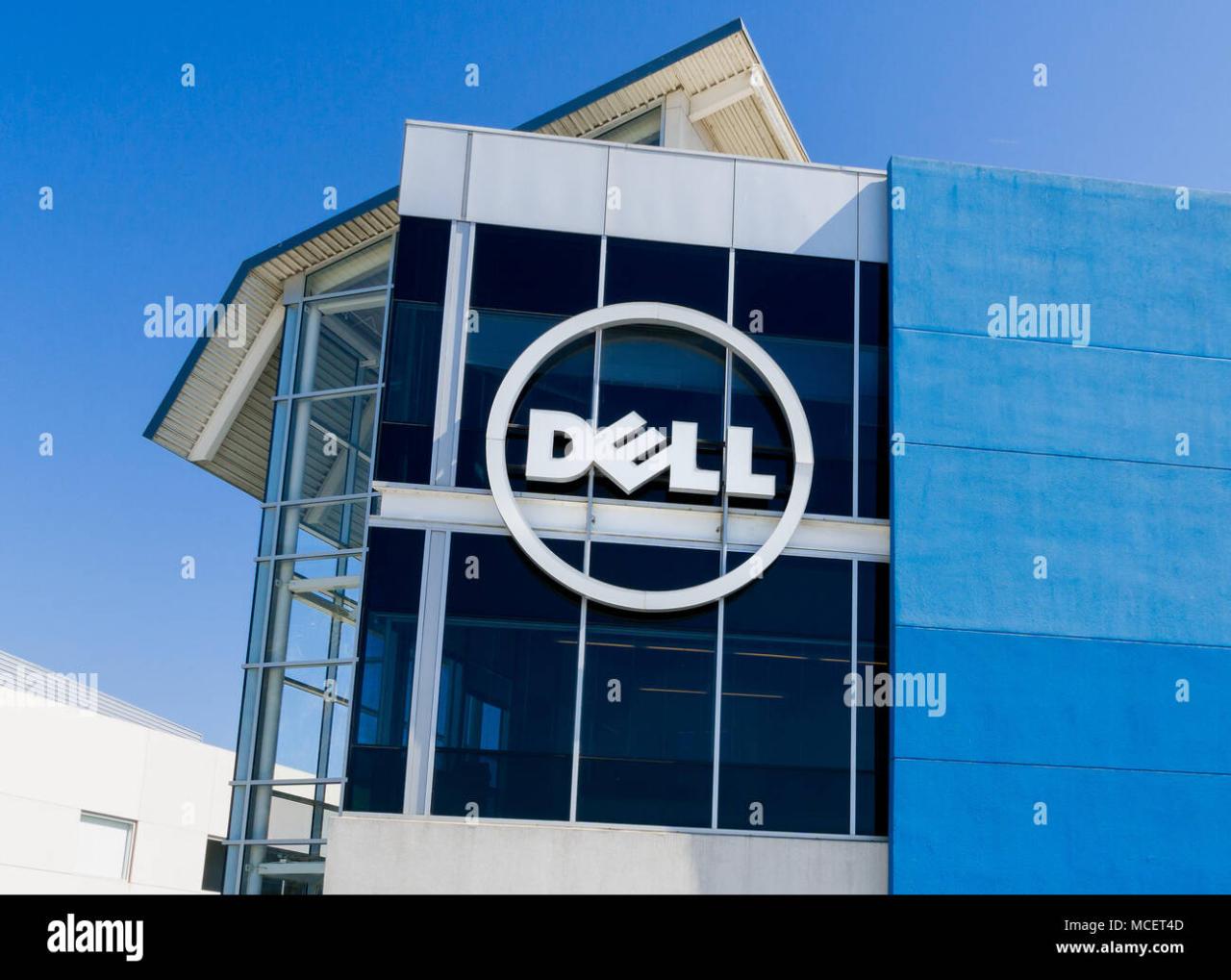
As Dell navigates the evolving landscape of the computer industry, it faces a myriad of anticipated trends and challenges that will shape its strategic direction. The technology sector is witnessing rapid advancements, requiring companies to adapt swiftly to maintain their competitive edge. Dell is poised to embrace these changes while addressing potential hurdles to sustain its market position.
Anticipated Trends in the Computer Industry
The computer industry is on the brink of significant transformations driven by several key trends. These trends will undoubtedly impact Dell’s operations, product offerings, and overall strategy.
- Increased Adoption of AI and Machine Learning: The integration of artificial intelligence across products is expected to enhance user experience and operational efficiency.
- Growth of Remote Work Solutions: As hybrid work models become entrenched, there is a rising demand for reliable and efficient computing solutions tailored for remote work environments.
- Focus on Cloud Computing: The shift towards cloud-based services continues to gain momentum, requiring Dell to optimize its hardware for seamless cloud integration and performance.
- Sustainability in Computing: The emphasis on eco-friendly technology is growing, compelling manufacturers like Dell to innovate with sustainable materials and practices.
Projected Innovations by Dell
Dell has Artikeld several innovations aimed at enhancing its product portfolio and responding to market demands. These developments reflect Dell’s commitment to remaining at the forefront of technological advancements.
- Launch of AI-Powered Laptops: Dell plans to introduce laptops equipped with AI capabilities to optimize performance based on user behavior.
- Expansion of 5G-Enabled Devices: The rollout of devices compatible with 5G technology is in the pipeline, facilitating faster connectivity and improved mobile experiences.
- Development of Modular Systems: Dell is exploring modular computing systems that allow users to upgrade components easily, reducing electronic waste.
- Enhanced Security Features: With cybersecurity threats on the rise, Dell is investing in advanced security measures across its devices, including biometric and AI-driven protection.
Potential Challenges for Dell
While Dell is positioned to leverage emerging opportunities, it must navigate various challenges that could impede its growth and success in the market.
- Supply Chain Disruptions: Ongoing global supply chain issues could affect the availability of components necessary for production, impacting delivery timelines.
- Intensifying Competition: The tech industry is witnessing fierce competition from both established players and new entrants, which may pressure Dell’s market share.
- Rapid Technological Changes: Keeping pace with rapid advancements in technology necessitates continuous investment and adaptation, posing a risk if not managed effectively.
- Cybersecurity Threats: The increasing prevalence of cyberattacks presents a significant challenge, requiring continuous updates and vigilance in security measures.
Common Queries
What is Dell’s founding story?
Dell was founded by Michael Dell in 1984 while he was a student at the University of Texas, aiming to sell computers directly to consumers.
What types of products does Dell offer?
Dell offers a wide array of products, including laptops, desktops, servers, and storage solutions tailored for various needs.
How does Dell ensure product quality?
Dell maintains rigorous testing and quality assurance processes throughout its manufacturing and supply chain to ensure high product standards.
What sustainability practices does Dell implement?
Dell engages in various sustainability programs, including recycling initiatives and efforts to reduce carbon emissions in its operations.
How does Dell support its customers?
Dell provides comprehensive customer support options, including online resources, phone support, and warranty programs to assist users.

